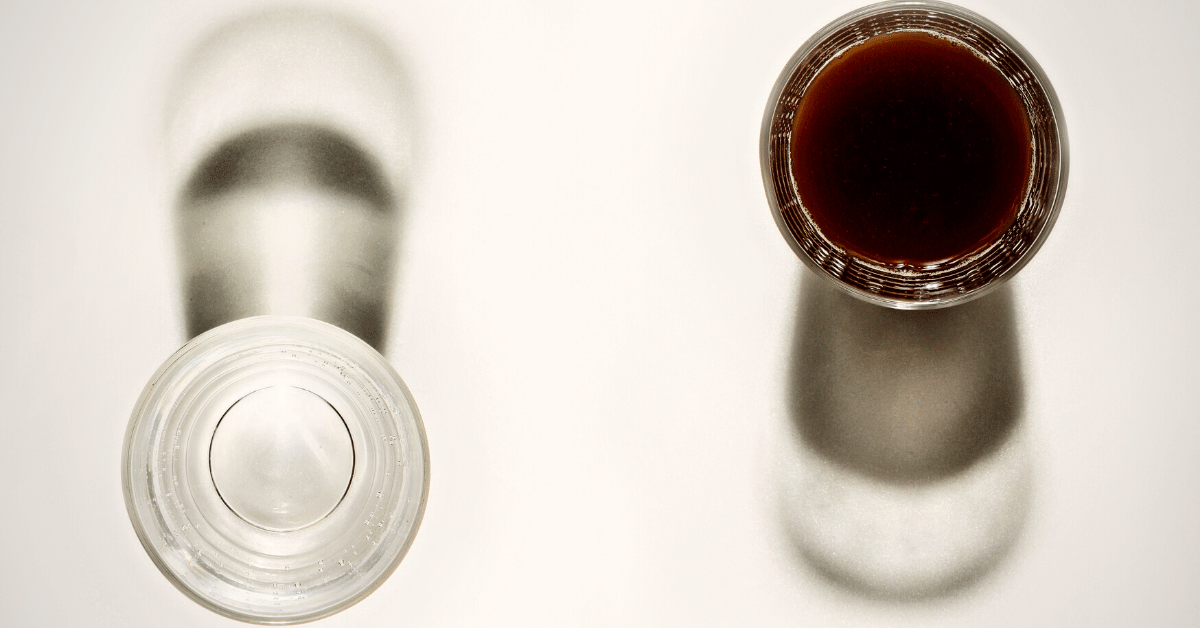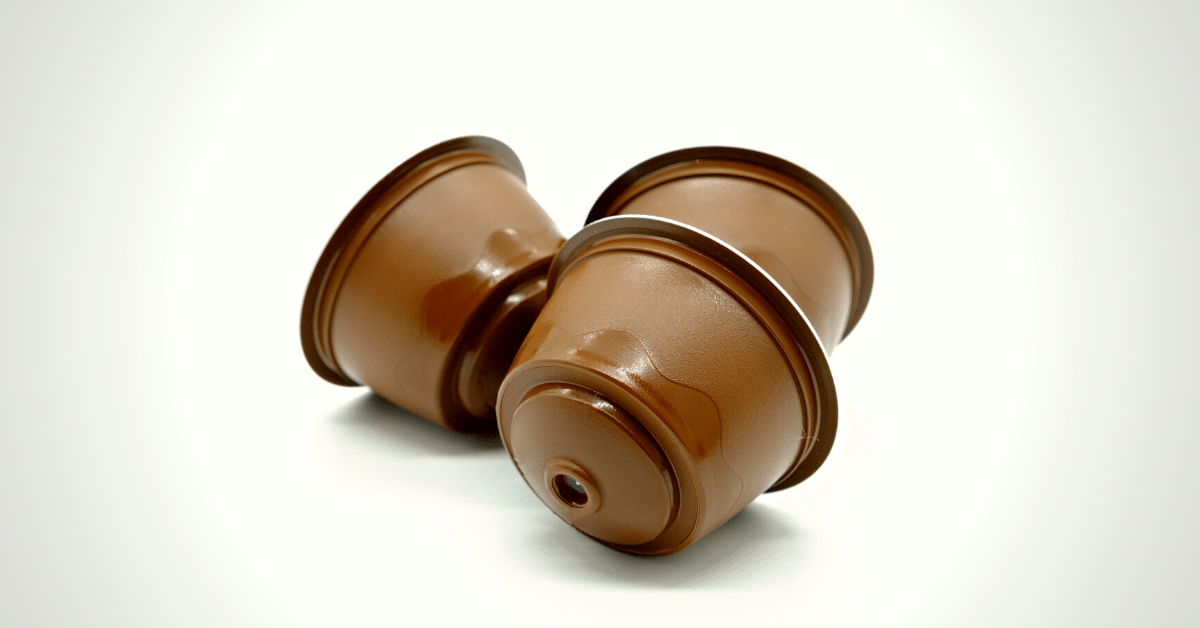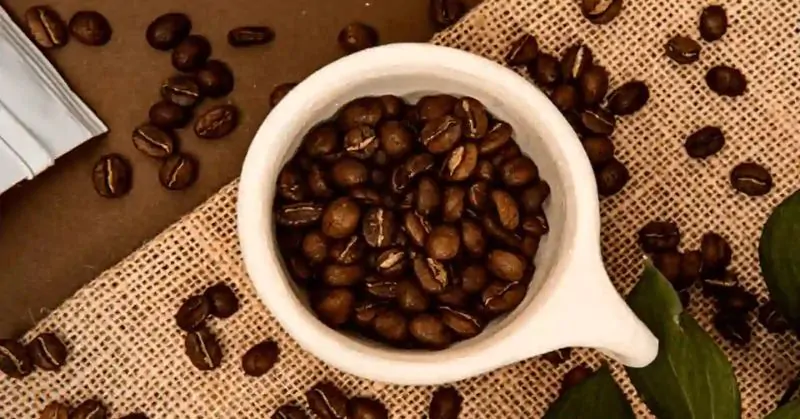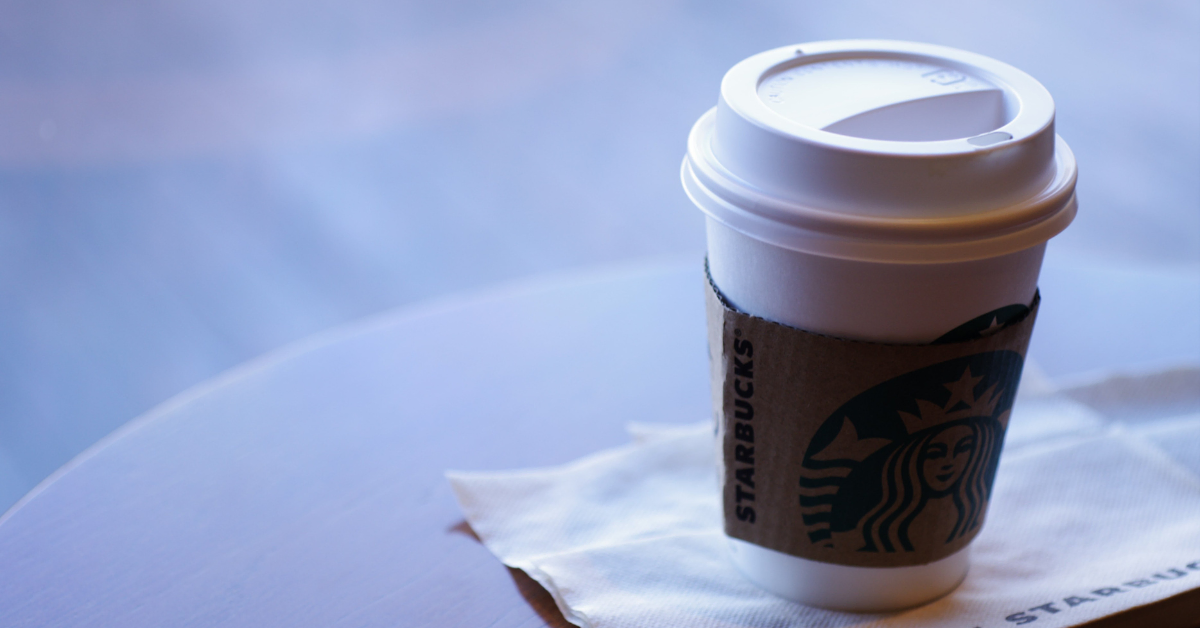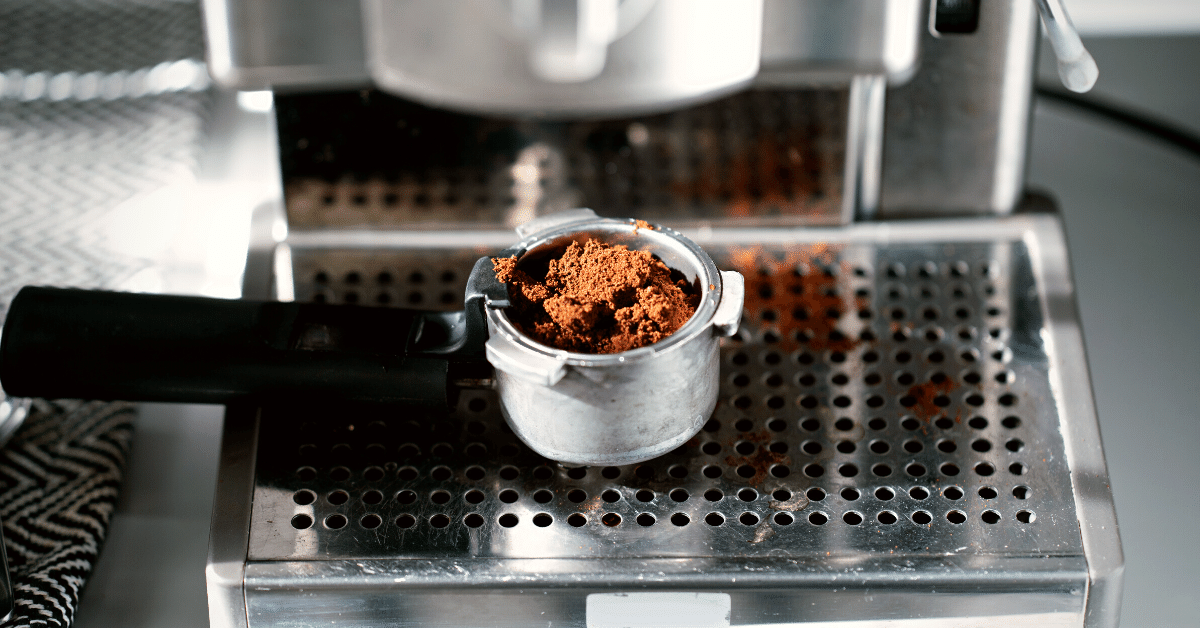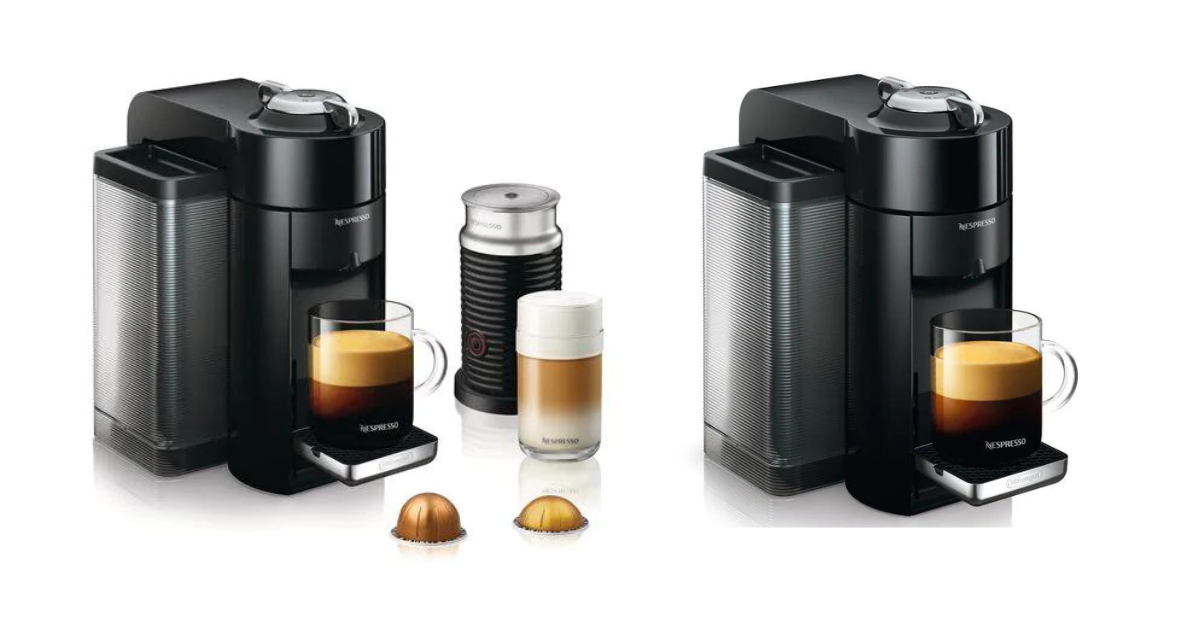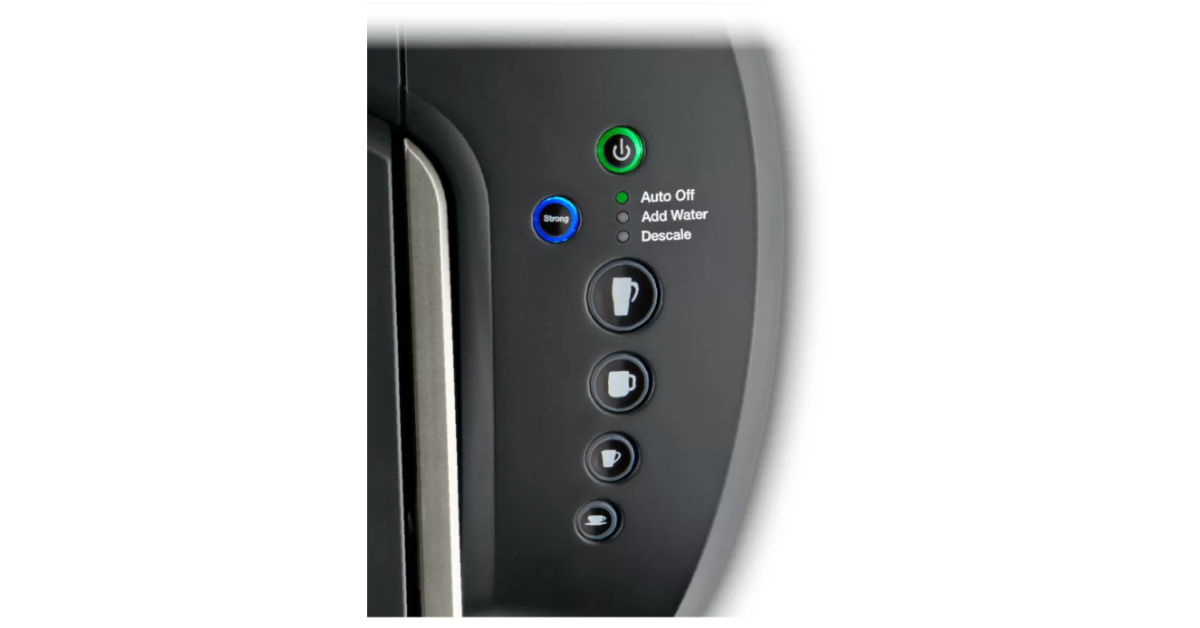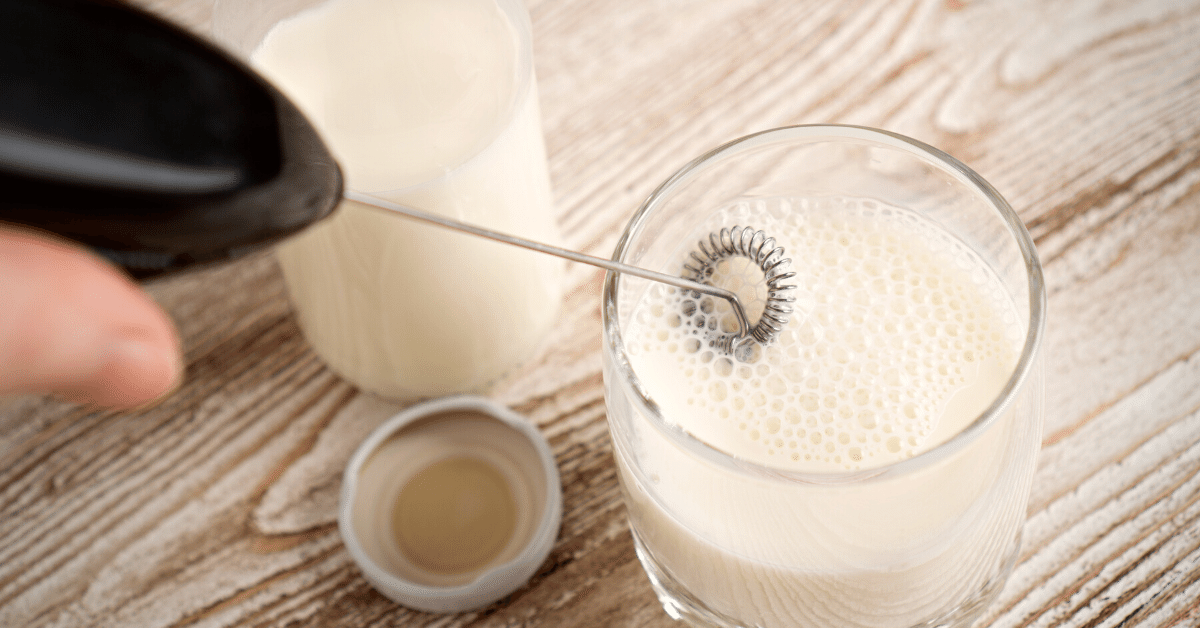Should you use distilled water for coffee? Jump into our guide and discover all you need to know about brewing your coffee with distilled water.
Coffee doesn’t taste good?
Water might be the problem.
Now, you might think that distilled water for coffee might be the best option.
However, that’s actually not the case.
To save you the trouble, I’ve done research on why that is.
And today, I’ll share my findings with you.
Let’s dive in.
Distilled Water: A Quick Overview
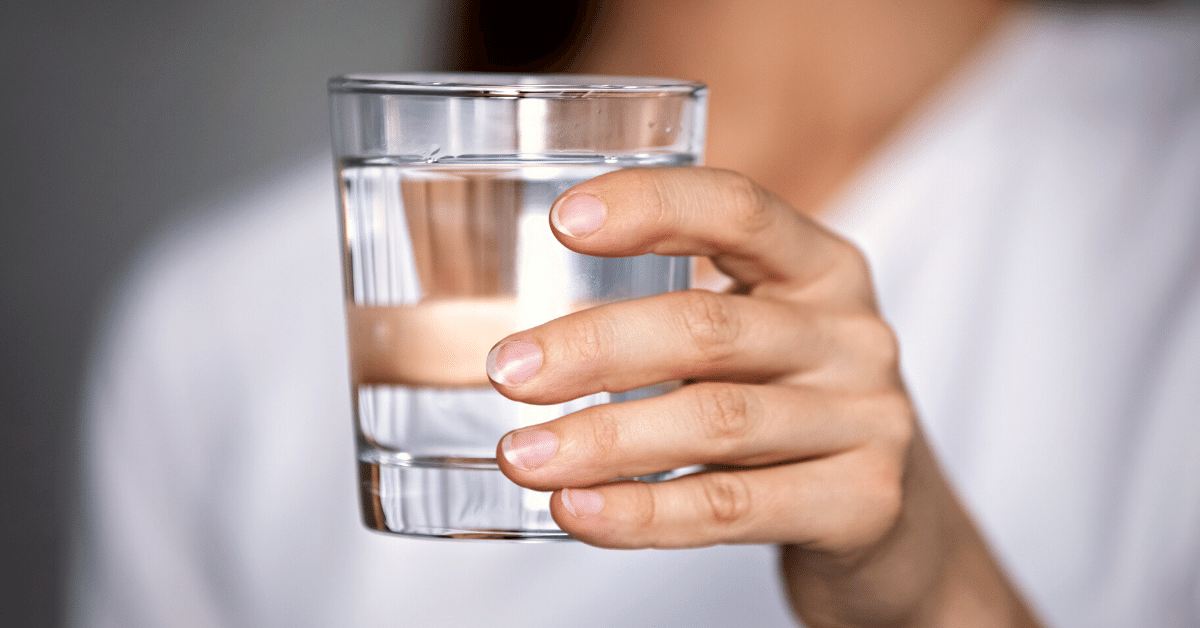
From humidifiers to flat irons, distilled water is commonly used in households.
But what is it?
Distilled water has gone through the chemical process, which removes all the impurities and minerals.
This is achieved by boiling water and condensing the collected steam back into a liquid form. The distillation process destroys everything from pathogens, contaminants, and pesticides to mineral content.
What’s left is purified water.
Is it OK to Use Distilled Water to Brew Coffee?
Now, pure water sounds like the perfect type of coffee brewing water, right?
Wrong.
In fact, there are several reasons why distilled water is a bad option.
How does it affect the taste of coffee?
Coffee is actually 98 percent water.
So naturally, the quality of water matters when it comes to coffee taste.
Now, we tend to say that plain water is flavorless. But that’s not true. You know how, when you’re thirsty, a cup of fresh water feels so good? Well, that’s because it activates certain flavor receptors in your mouth – which proves that it does have a certain taste.
And what causes it to have that flavor is the mineral content in it. Water naturally contains different minerals, including:
- Calcium
- Magnesium
- Sodium
- Fluoride
- Potassium
- Iron
- Zinc
Arguably, natural spring water and mineral water are considered to be the tastiest. That’s because they have a nice balance of mineral content, which makes them smooth and drinkable.
When you add coffee to the equations, these minerals bring out the flavor notes in coffee beans.
And the mineral that does the most is sodium.
Do you know how adding a pinch of salt to any dish makes it 100 times better? Well, that’s what happens with coffee.
But distilled water has no minerals. That’s why it won’t add any additional flavor to your coffee.
And not just that. The fact that distilled coffee is so softened actually results in a weaker extraction. Basically, the flavor molecules have nothing to latch onto, so they simply pass through water and leave nothing behind.
How does it affect your coffee maker?
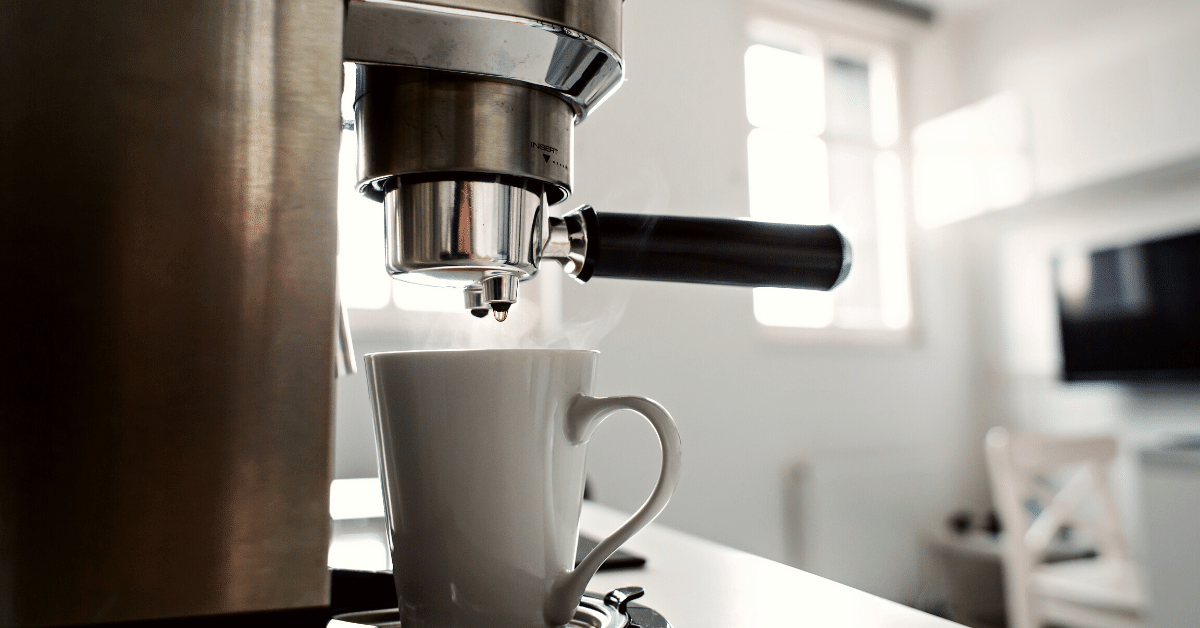
Limescale is every coffee maker’s biggest culprit, and hard water is the main suspect.
So, by using distilled water, you prevent it from forming in the first place?
Well, yes. But it affects your machine in another way.
You see, with no minerals to balance the pH level, distilled water acts like a magnet. What it does is leach ions from metal, causing it to corrode. So, using distilled water in a coffee machine can degrade it faster than limescale.
Certain brands, like Keurig, specifically state not to use distilled water in their machines, as it can damage them.
KitchenAid is also against using distilled water, although for a different reason.
According to the brand, distilled water causes issues with the water flow. Since it’s an excellent solvent, it causes coffee grounds to swell. This slows down the water flow, causing grounds to over-extract and make bitter coffee.
Is it healthy to drink coffee made with distilled water?
Finally, let’s talk about the health benefits of drinking water that has been distilled.
Well… there are none.
You see, essential minerals in water are all important for our bodies:
- Calcium is necessary for growth and bone strength
- Sodium aids in achieving the proper balance of water and minerals
- Magnesium helps in blood pressure regulation, blood glucose levels, and nerve function
- Fluoride and phosphorus are important for bone and tooth health
And while we get the majority of these minerals through food, a small portion of them comes from water. So when you’re drinking distilled water, you don’t intake these important minerals in your body.
And not just that. As I already said, distilled water works like a magnet. This also means that it can pull a small amount of minerals from your body.
Now, if you’re healthy, drinking distilled instead of regular water shouldn’t cause mineral deficiency. But if you’re struggling with a lack of dietary minerals, that might be the issue.
What Is the Best Water for Coffee?
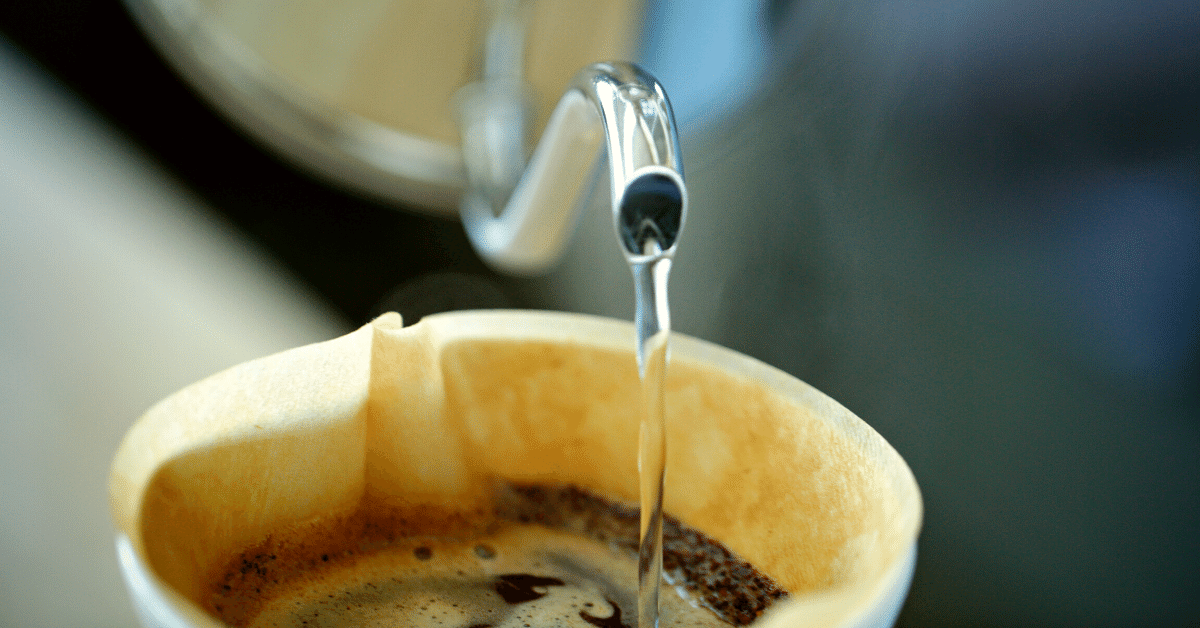
So, we established that distilled water is not a good option for brewing coffee.
But what is?
Well, the best water for coffee should be:
- pH neutral (between 6.5 and 7.5 pH)
- Clean
- Clear
- Fresh
- Total dissolved solids (TDS) level between 50-150 ppm
When it comes to pH level, 7 is considered to be completely neutral, and it’s the best option. However, anything from 6.5 to 7.5 pH should taste good.
In fact, going with slightly acidic water is a bit better for extracting flavors, while alkaline makes it a bit flat.
The fact that your water needs to be clean and clear is pretty self-explanatory.
Why does freshness matter so much, you ask?
Well, because the longer water sits out, the more carbon dioxide dissolves in it. This is a reaction that causes carbonic acid to form, increasing the overall acidity of water. And that doesn’t taste very good.
Finally, we have Total Dissolved Solids (TDS). TDS refers to the concentration of dissolved substances in water – including dissolved minerals.
As we already established, a certain amount of these minerals is desirable in water. To be precise, between 50-150 ppm is the best concentration.
Now, how do you achieve that?
Well, you have three options:
- Tap water
- Filtered water
- Bottled water
When it comes to tap water, it really depends on where you live. Certain states, like Alabama, Missouri, and New Jersey, have optimal TDS levels for brewing coffee.
Figuring out the TDS level of your tap water is a piece of cake. You can get a TDS meter online for cheap, and it’s a very precise tool for testing water.
However, tap water can contain substances like lead or arsenic and chemicals, including chlorine, which is not healthy.
If that’s the case with tap water in your area, you can always filter it.
While sediment filters only remove impurities from water, carbon filters also get rid of chlorine. At the same time, both filters keep the minerals in the water, ensuring it still tastes great.
Finally, you can choose bottled water for brewing coffee. But not just any bottled water.
You need to make sure that the bottled water of your choice has the right pH and TDS levels.
Calcium and magnesium are the two typically most concentrated minerals, so look for water with low amounts of them.
To Sum Things Up
While distilled water is exceptionally pure, it’s not the best option for coffee.
Not only does it taste bland, but it’s not great for your health or your machine.
The best water for brewing coffee is pH neutral, clear, fresh, and has a limited amount of minerals. In some areas, tap water checks all the necessary requirements. Alternatively, you can achieve that by filtrating it or using bottled water instead.
Can you brew coffee with milk? Find out everything you need to know about using milk instead of water for your coffee.

